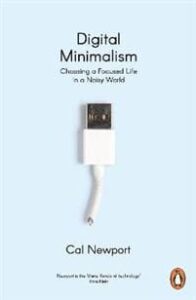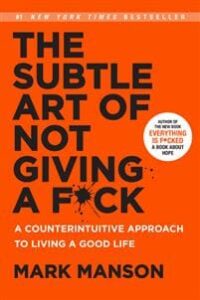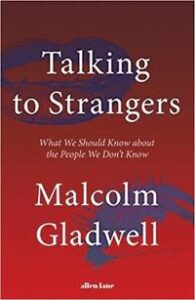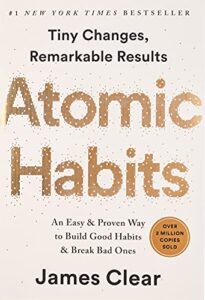Introduction
This book explains why too much time on our phone and social media is bad for us. The average time a person spends on the phone today is around 7h. Most of the time no meaningful progress is made. If they are asked, most people would say that they are not happy with how they spend their time. These apps that were created to make our life better is actually making it worse. This also gives advice on how our phone and technology should be used instead to get better results in life.
Tech Companies Wants Your Attention and Time
Big tech companies today are in the attention and time business. The more attention and time you give them, the more money they get from advertisers because they sell your attention and time to them. All apps are designed and developed to be addictive so that we spend as much time on them as possible. People don’t get addicted to their phones because they are mentally weak or lazy but because billions of dollars have been invested in making them addictive.
The reason we get addicted to social media is because of two things: unpredictable positive reinforcement and social approval. Unpredictable positive reinforcement means rewards such as likes, upvotes and swipes that pop up on our phone at random times. Social approval means we are looking for attention and validation from others. Both these releases dopamine in the brain. When we are bored, we normally think about our social status and comparing ourselves to others.
What is Digital Minimalism?
Minimalism is knowing how much is enough to live a good life. Digital minimalism is a philosophy or a set of rules for using technology based on what you value in life. Digital minimalism is all about selecting technology that supports what you value and removing the technology that takes more than it gives. This philosophy follows three principles:
Clutter is Costly
You want to avoid too many devices and apps because they are going to steal your time and attention. If you do not reduce clutter, the cost will be bigger than the benefit. When deciding think of how this will cost you in terms of money, time and energy, both now and in the future. If you spend 2h on an app it should produce at least 2h worth of result or if there is some other benefit that is making it worth your time.
Optimization is Essential
To get maximal benefit from each app or technology, you must think about how and why you are using it. Always aim to optimize the value you get from using an app or technology. If an app only adds a small amount of value, it is better to skip it.
Intentionality is Satisfying
This means you get satisfaction and joy when using an app or device because you have internally chosen it. This technology or apps helps you in your daily life and moves you forward in life.
The Law of Diminishing Returns
The meaning of this is that the more things you add the less value you will get for each addition. One or two new apps on your phone might give a lot of value. But if you add 10 or 20 more apps with similar base functionality but some slight differences it is only going to make your life more complex and exhausting. Only have apps that are going to help and improve your life and don’t have apps with similar functionality.
Why digital minimalism
Our life will be filled with distractions if we don’t filter the apps or technology we have. Too many apps will negatively affect our ability to concentrate. For each app we have, part of our attention and focus will be wondering what’s happening on there. When we do concentrate, it is only a matter of time before we are disturbed by a notification.
The average time a person spends on the phone is around 7h per day. This has negatively affected people’s mental health, especially those born after 1995 who didn’t know life before smart phones. The result is an increase in anxiety, depression, loneliness and other mental disorders. Social media has become a place where it makes us feel more connected but also more lonely, more happy but also more sad.
People’s attention span or ability to concentrate has been reduced thanks to all the phone notifications. Mental weakness has also reached a new record and people expect fast results over night while note not wanting to put in any work.
Start Your Digital Declutter
It is recommended that removing technology should be a quick transformation instead of a slow and gradual one. This is done in 4 steps:
- Take a 30 day break from all technology that is not essential. If you need to spend time to look for a reason to keep an app or program that means it is not essential. Set up strict rules.
- Use these 30 days to learn new skills and observe your behavior. These new skills are supposed to fill in your new free time that was previously spent online.
- After the 30 day break you can start reintroducing technologies by questioning if you really need it, such as “does it give more than it takes” and “Is this technology or app the best way to support my value or perform a task?”.
- For each technology you reintroduce, you must know its purpose and the value it serves in your life. You are going to delete some apps and therefore miss out on the information they gave you. But this is a positive thing since most of this information was probably not useful and related to your goals in life.
Practices to Implement Into One’s Life
Spend Time Alone
Technology has made us spend less time alone with our own thoughts. The author encourages us to spend more time alone with ourselves. This is for three reasons: observing our thoughts, becoming more self-aware and taking a break from all the noise around us. When we are alone there is no input from other people which gives us time to think and come up with new ideas. This can be done by taking long walks without your phone.
In general, we should focus more on our own thoughts rather than being affected of what everyone else is thinking and doing. We will be better at understanding ourselves and have our own opinion about things. If you spend more time alone, you will also appreciate social interactions more.
Don’t Click “like”
The book recommends that you should stop clicking “like” or commenting on social media posts. Engaging with these behaviors will only fool yourself into believing that these interactions can replace proper conversations. By removing these behaviors from your life, it will force you to engage in real conversations. Chances are also that when you press “like” you are sending on notification to the other person and breaking their concentration.
Create Time For Conversation
Create specific times during specific days of the week in which you are available for conversation. Then tell people you want to stay connected with about these times. This can both be on the phone or in real life. The reason why conversation is better than texting is because it involves the tone of you voice, facial expressions and emotions.
Stop Texting
The reason for this is because texting doesn’t form any strong bonds. Texting should only be used to plan for real life interactions and phone calls or settling matters that doesn’t need a reply. This can be implemented into one’s life in 3 steps.
- Turn off your notifications on the phone.
- Select 2 or 3 times during the day to check your phone and answer notifications. If someone gets angry because you didn’t answer quicker then tell them the times you check your phone. If something is important tell them to call you.
- When someone sends you an open question that can lead to a lot of texting, then call them instead.
Texting can also lead to anxiety and stress because you are worried the receiver didn’t interpret your message correctly.
Reclaim Leisure
Leisure time and breaks are very important to live a happy life. The author advice that most of our leisure time should not be spent in front of screens or online. Time spent in front of screens or online does not qualify as high-quality leisure. The feeling after spending time on social media or watching random videos is often a bit of regret and a bit tired.
The book gives four suggestions on how to better spend your leisure time and feel satisfied and energized afterwards.
- Prioritize demanding activity over passive consumption.
- Learn a new skill and use it to create valuable things.
- Look for activities that require real-world social interactions.
- Prioritize conversation over connection.
These activities do not need a purpose. But instead, do it only for the activity itself and the satisfaction you get from doing it. We need activities that serve no other purpose than the satisfaction that the activity itself creates.
Join the Attention Resistance
Here are some suggestions on how to prevent companies from taking your attention.
- Delete social media from phone and use it on a computer instead. Reason is because phone versions are more addictive.
- Only use social media during specific hours of the day and have a max time limit spent on them (this can be per day or per week).
- Understand that all your friends on social media are not really your friends. If you are scared to call them or meet up in real life, then they are not your friend.





